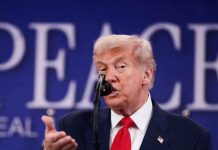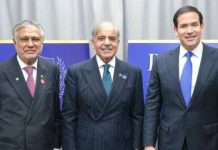TEHRAN, NOV 22 /DNA/ – “Gaza War has led to the transformation in Iran’s strategic thinking which is increasingly inclined towards nuclear deterrence”, said Dr. Nabi Sonboli, an international affairs expert at Institute of Politics and International Studies (IPIS), Tehran. He was speaking on an event organized by Institute of Regional Studies (IRS) on “Gaza War and Transformative Nature of Iran-Israel Conflict” in Islamabad. Dr. Nabi, while discussing a wide array of issues, mentioned that Gaza War debunked the myth of Iran as a destabilizing state in the region. Instead, it tarnished the Israeli image which had disrupted the regional peace and stability, he added. Dr. Nabi pointed out that region had observed the political realignment where Arab states were joining hands with Iran in condemning the Israeli actions and advocating for Palestinian statehood. Dr. Nabi was pessimistic about the future as he forecasted temporary ceasefire instead of any permanent solution of this ongoing conflict.
Mr. Dmitry Stefanovich, Research Fellow and a renowned weapon technology expert at Center for International Security, Moscow, laid emphasis on Iran-Russia technological cooperation. He argued that Iran and Russia were the only two states that resisted against the western arms technology and their partnership was mutually beneficial in the fields of system engineering and information sharing. Mr. Stefanovich also added that the relative power of the US was diminishing and hence, cooperation between Russia and Iran was also crucial for global military stability. Mr. Stefanovich defended that Russo-Iranian military collaboration in Syria equipped both these states with the knowledge of using advanced technological weapons by avoiding civilian casualties.
Mr. Pooya Mirzaei, a renowned foreign affairs correspondent in Tehran, highlighted that Iran employed ‘Parthian Model of Fighting’ which was based upon exploiting hidden underground facilities. He refuted the claims of success made by Israeli officials and argued that Israeli strikes on Iran were successfully thwarted by Iranian missile defense system. Mr. Pooya also raised doubts on Israeli capabilities by questioning the absence of any footages of Israeli attack. Mr. Pooya celebrated Iran’s “Operation True Promise II” against Israel and likened Hamas with French resistance during WWII. In the end, Mr. Pooya argued that Iran’s nuclear strategy might change in the wake of any external pressure.
Earlier, Amb. Jauhar Saleem, President IRS, shared his concerns regarding the expansion of the conflict in the Middle East. He stressed on the ceasefire and shared his optimism towards de-escalatory efforts by the US. Amb. Jauhar also mentioned that the ongoing crisis could lead to nuclear proliferation, supply lanes disruption, mass migration and terrorism surge in the Middle East.
In the end, Mr. Fraz Naqvi, Head of Iran Program at IRS, thanked the speakers and concluded that both Iran and Israel were likely to continue their confrontation in various ways which had the potential to engulf the entire region into its flames.












